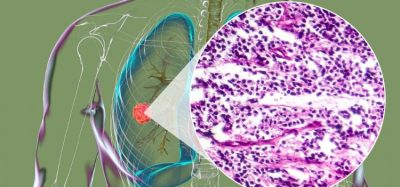Whitepaper: Multiplexed cancer immune response analysis nCounter® PanCancer Immune Profiling Panel for gene expression
Posted: 1 October 2015 | nanoString
The ability of mutated cells to give rise to pathological cancer relies upon the capability of these cells to evade immune recognition, suppress immune activity, and persist in a chronically inflamed environment. Tremendous growth in the understanding of these complex processes is beginning to generate breakthroughs in the treatment of cancer, and “Cancer Immunotherapy” was recently named the “Breakthrough of the Year” by Science in 2013.
However, our understanding of the immune response to cancer is far from complete. There is a need for tools that enable researchers to explore the tumor microenvironment in new and different ways. This report describes a novel gene expression panel that will enable researchers to create profiles of the human immune response in all cancer types and shows how this panel has the potential to accelerate the development of drugs, therapies, and predictive biomarker signatures for response to immunotherapeutic treatments.
The nCounter® PanCancer Immune Profiling Panel is a highly multiplexed gene expression panel designed to quantitate 770 genes that fall into four functional categories:
- Identifying immune cells, such as those in a PBMC population or infiltrating into a tumor.
- Assessing immunological function and response to immunotherapy, such as immune checkpoint regulation.
- Identifying tumor-specific antigens, such as cancer-testis (CT) antigens.
- Housekeeping genes that facilitate sample-to-sample normalization.
The nCounter PanCancer Immune Profiling Panel is fully compatible with clinically relevant sample types such as fresh-frozen (FF) tissue, formalin-fixed, paraffin-embedded (FFPE) tumor sections, isolated immune cell populations such as PBMCs, and cell lysates. The panel may be used in conjunction with nCounter® Panel-Plus products for additional flexibility in experimental design.
This whitepaper is restricted - login or subscribe free to access


Why subscribe? Join our growing community of thousands of industry professionals and gain access to:
- bi-monthly issues in print and/or digital format
- case studies, whitepapers, webinars and industry-leading content
- breaking news and features
- our extensive online archive of thousands of articles and years of past issues
- ...And it's all free!
Click here to Subscribe today Login here










